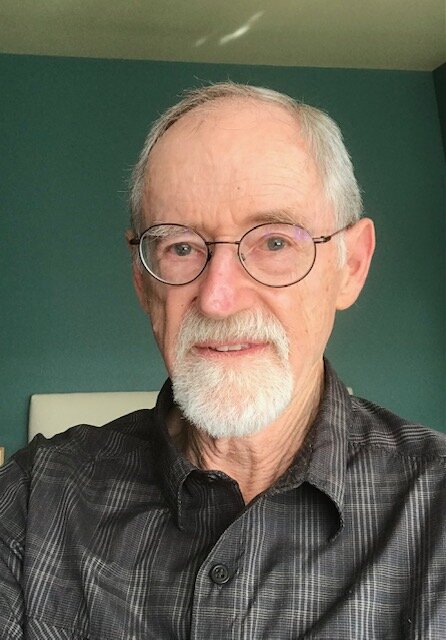Doug Stevenson

Doug Stevenson, Board of Directors, Project Finance Committee
Doug has extensive experience developing supportive service systems and housing for persons with disabling conditions. He had a 34 year career with King County. The first half of that career he worked in the Human Services Division which managed the Community mental health, developmental disabilities, substance abuse treatment and aging services programs. At first he was the Planning and Evaluation Coordinator, supporting the work of citizen boards in each service area. During his last four years with the division, he was the Division Manager. In his planning role he developed the first housing needs assessment for the mentally ill. This assessment, completed in 1979, helped bring about the development of more than 1000 units of supportive housing for the mentally ill and helped develop housing partnerships with King County and City of Seattle Community Development/Housing Programs. He helped the Developmental Disabilities Program create and implement supported living and employment programs that enabled young adults to be contributing participants in the community rather than living in isolating institutions. Because most of the funding for these services came from the state, Doug also became the designated county point person on enabling legislation and budgets for these programs with the state legislature. He helped coordinate with county government, service provider coalitions and family advocate groups statewide to improve community programs legislation and obtain more sufficient funding and authority for a full array of treatment, habilitation and supportive services. He played an instrumental role in obtaining comprehensive community mental health legislation and authority to manage most public funding available for community, as opposed to institutional, services. As a result, the county budget for mental health went from a few hundred thousand dollars a year in 1974 to over $100 million by the early to mid-nineteen nineties. It became clear to him early-on that housing and services to help obtain and maintain housing had to be essential, not ancillary, components of the community system. In the two years before beginning at the county, Doug had worked in time-limited, recession-funded jobs at the state Department of Social and Health Services, Office of Mental Health. He and two other employees helped to close down Northern State Hospital and return hundreds and hundreds of people to King County with little provision for treatment and virtually no provision for housing. This experience drove his career-long mission to see housing and service development go hand-in-hand.
After a break in 1987 to take his family on a van trip to the 4 corners of the United States, Doug worked briefly for the Association of Counties to obtain better funding for community human services and then returned to King County. The County Council hired him to develop a service plan for its first systematic appropriation of local funding for human services. This work lead to an on-going job as the Council’s human services analyst. When METRO transit and sewers were merged with King County in 1994, he was appointed Lead Staff of the Law, Justice and Human Services Committee. In this position, he soon became very aware of how the criminal justice system had become the default system for handling mental health and substance abuse crises, not to mention all the other crises of poverty, and the compounding interaction of all of them. With state limits on county funding from property taxes, and exponential growth in the use of courts and jails, it became clear by the end of the 1990’s — the county had to fundamentally rethink its approach to criminal justice. The Council and Executive cooperated in developing Youth and Adult Criminal Justice Master Plans which called for reducing the use of both juvenile and adult incarceration by diverting or sentencing offenders to proven rehabilitative and supportive service options. These plans were developed with the help of Prosecuting Attorney and the Courts who, awakened by the new state funding limits, came to see how they were increasing the use of incarceration and court processes even though the crime rate was coming down. Doug was part of the core staff working on the development, adoption and implementation of these plans.
Implementation of the Criminal Justice Master Plans began right away. Within a year and a half, the use of juvenile detention was reduced by three quarters and adult detention by one-third, and crime rates did not increase. Growth in criminal justice costs was significantly reduced but actual savings were not possible as most of the infrastructure had to be maintained. Initial alternative services were funded by marginal savings throughout the criminal justice and human services budgets. Additional services, however, were ultimately funded with a successful Criminal Justice and Human Services Levy campaign and adoption of a state law allowing county legislative bodies to raise a portion of the sales tax for additional services for persons with mental illness and/or substance abuse. King County implemented this tax in 2006. Doug developed a proposal to use the first year’s sales tax proceeds as seed money for housing development for the neediest, chronically homeless population of mentally ill and substance abusing residents. The proposal was approved and resulted in development of more than 1500 units of affordable housing (with services paid by the on-going sales tax proceeds). United Way, the County and the City of Seattle created the “Out of the Rain” partnership, pooling and attracting more resources to develop this housing. Doug retired from the county in 2007, built a new deck on the Lopez house for his son’s wedding, and helped United Way staff the Out of the Rain project for the next few years.
Doug and his wife, Marcia, bought a house on Lopez in 2001 together with a friend. The house is in the Davis Head community. He is currently on the Davis Head Board and has served as President of the Board twice. They split time as evenly as possible between Seattle and Lopez, but now most of their friends are on Lopez. It is the center of their social life.

